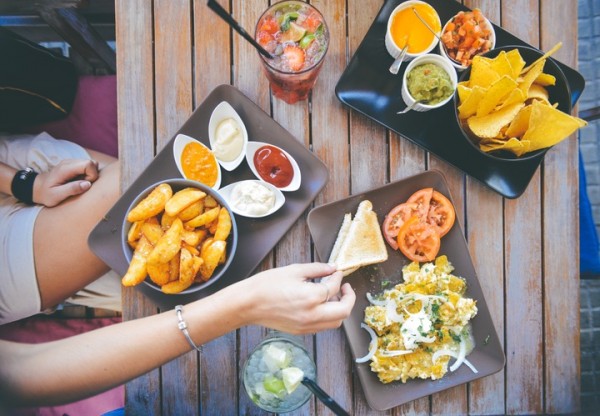4 Unhealthy Eating Habits You Should Stop Doing
If you are one of the many who suffered from an eating disorder before, you'd know first-hand how aggressive obsession with food can be.
With the unhealthy practice of eating, food controls our day-to-day actions. It becomes more essential than studying, working, and attending to other obligations.
It may be hard to believe, but even food can hurt your relationship with other people and even yourself. For health conditions affected by wrong eating habits, the first step to recover is by identifying indicators.
Here are 4 of the eating, workout, and social practices, as claimed by the experts that can indicate underlying issues with your relationship to food:

Experts say, allow yourself to enjoy the foods you love while making an effort to include those that will give your body nourishment.
ALSO READ: High Glucose Levels May Limit One's Capability to Do Aerobic Exercise
1. You Exercise Strenuously to Compensate for the Food You Just Consumed
This way of thinking prepares you for putting up a fight between your body and mind. According to licensed psychologist and psychoanalyst, Lindsay Brancato, this habit is "a very black-and-white way of thinking about food, exercise, and our bodies," It reveals some hazardous nutritional beliefs.
The expert also said that if you think about your exercises in terms of calories burned or what your foods are made up for, it is better to ask yourself why.
Exercise should make us feel good and not be considered a punishment. And when you do so, as a punishment, it can then turn out to be counterproductive by activating your body's stress responses, explained Brancato.
2. You Avoid Socializing Because You are Concerned About the Food
According to a nutrition consultant for RSP Nutrition, Brooke Glazer, this practice "lives in the same vein" as the earlier-mentioned. Suppose you avoid socializing or attending social events like a birthday party. In that case, dinner gets together, or family gathering, among others, because you're afraid of the food served there, it definitely "indicates a problem."
Glazer said you are opting to stay safe in terms of choosing foods instead of spending time with people who matter to you.
Food plays a vital role in every person's relationship, as well as his social life. Therefore, if you are one of the many who avoid such an opportunity to socialize, the nutrition consultant emphasized, you could end up missing out on a lot of joys in life.
This cycle or practice can be broken, though. The expert said, our body knows "what to do with the food we put into it," Thus, we can trust it.
For instance, at a birthday party, you want to eat a piece of it, do so. Although probably, you should also eat something from the fruit tray, knowing you provide nourishment to both your body and mind if you choose both.
DON'T MISS THIS: 6 Reasons Why You're Gaining Weight Unintentionally
3. You Feel so Guilty While, or even After Eating, Especially if You Ate 'Unhealthy' Food
Conclusion: that guilt feeling after eating is a perfect example of food controlling you, instead of having control over your food choices.
According to Educated Wellness functional nutrition therapy practitioner, Maureen St. Germain, you are not likely to be blamed, though. "Many nutrient-poor foods," she elaborated, are made to be "hyper-palatable."
St. Germain said it is essential to recognize your body's extra stress by punishing yourself with these guilty feelings.
4. You Keep on Trying New Diet
Switching from one diet to another may specify you have a strained relationship with the food you eat or your body image.
According to a registered dietitian, Alex Turnbull, there is no need to search look just to find the right diet for you. Frequently, fad diets may be quite limited and leave you unsatisfied, not to mention, unsuccessful with your fitness and weight goal.
Instead of dieting the traditional way, the expert said, you must try a sustainable, nutritious eating habit that will work efficiently.
More importantly, Turnbull said, allow yourself to enjoy the foods you love while making an effort to include those that will give your body nourishment.
Furthermore, the dietitian said, "Keep food and nutrition simple." Don't make eating too complicated, he added, and if additional support is needed, seek help from experts.
IN CASE YOU MISSED THIS: Is Excessive Exercise Linked to Eating Disorders? Here's What Studies Say
Check out more news and information on Diet Trends and Eating Disorder on MD News Daily.
Oct 08, 2020 08:20 AM EDT





